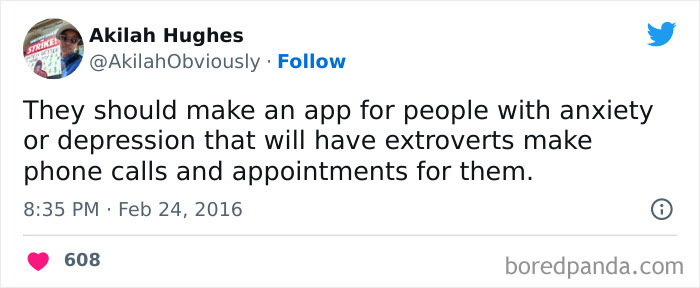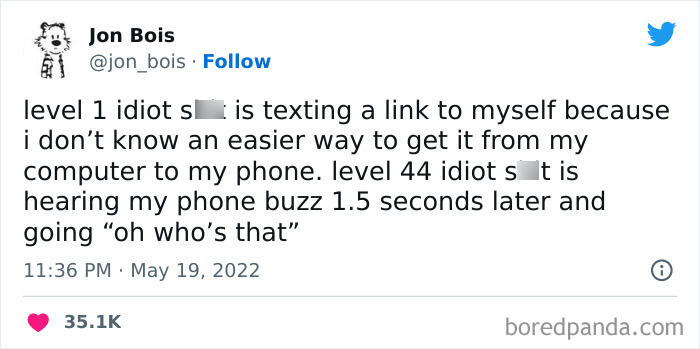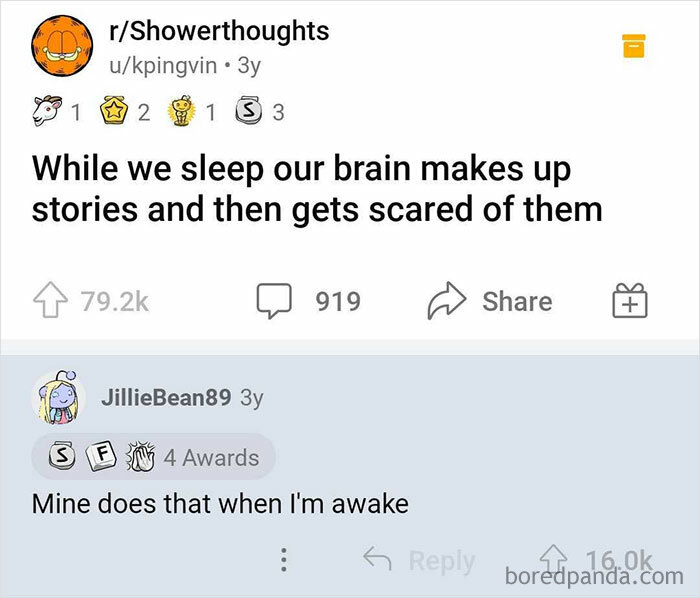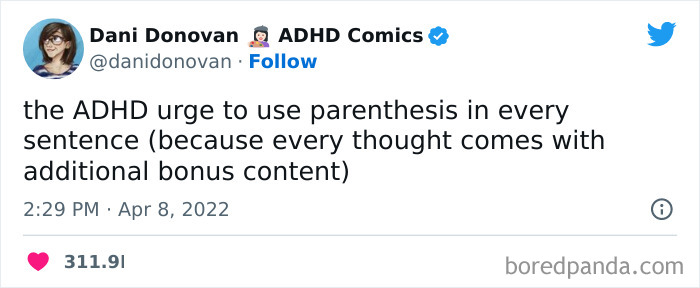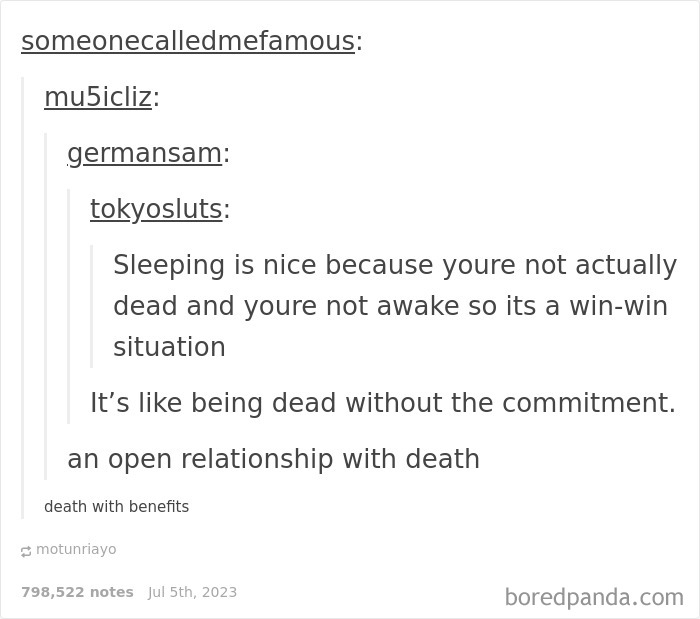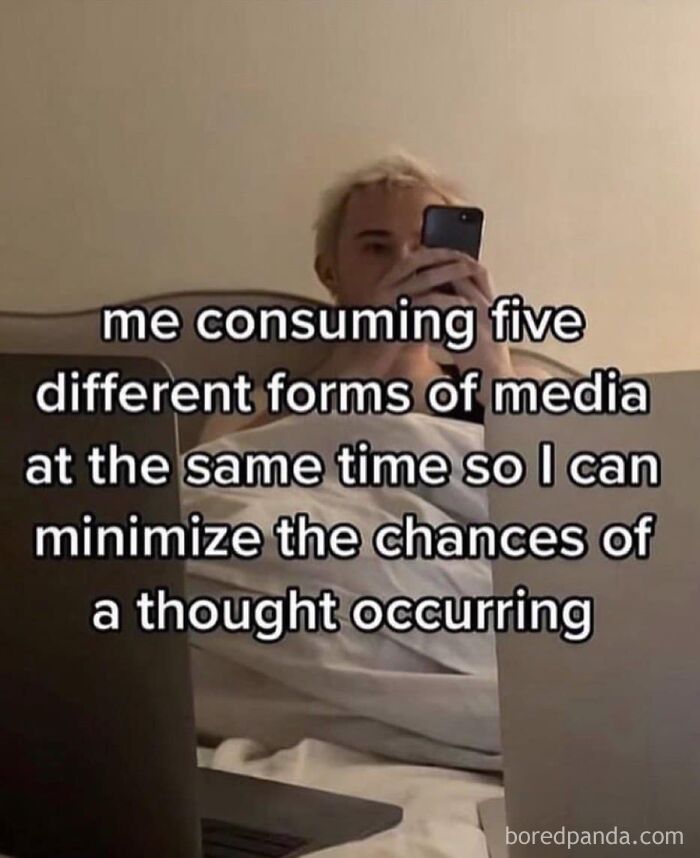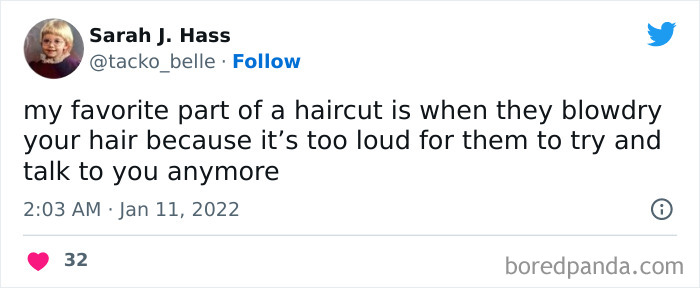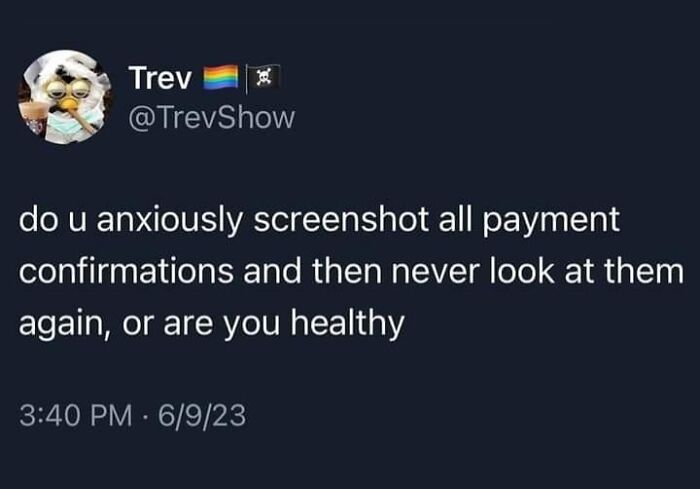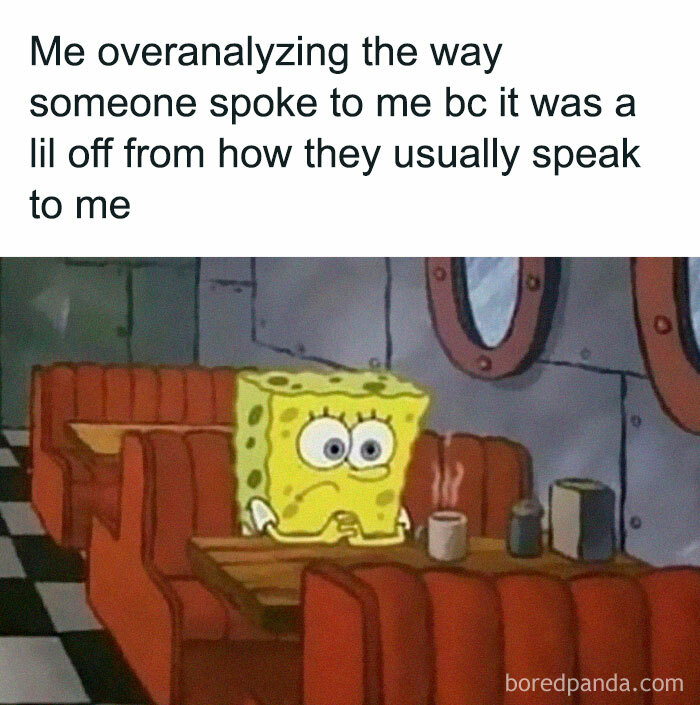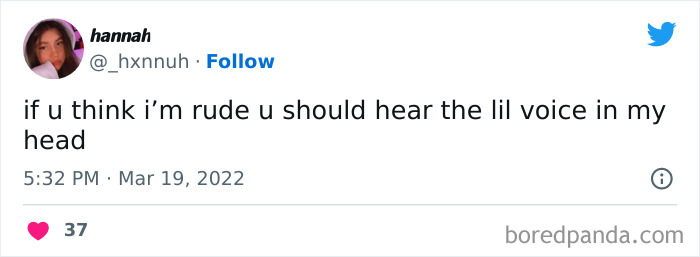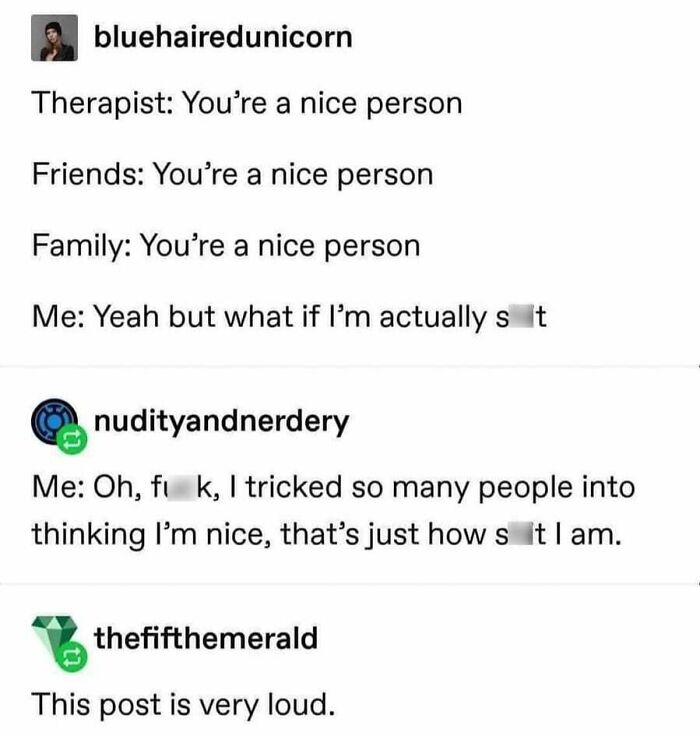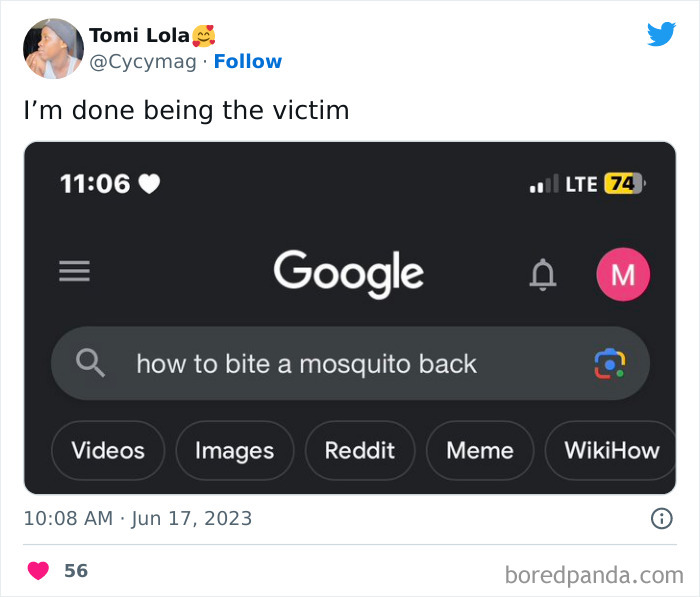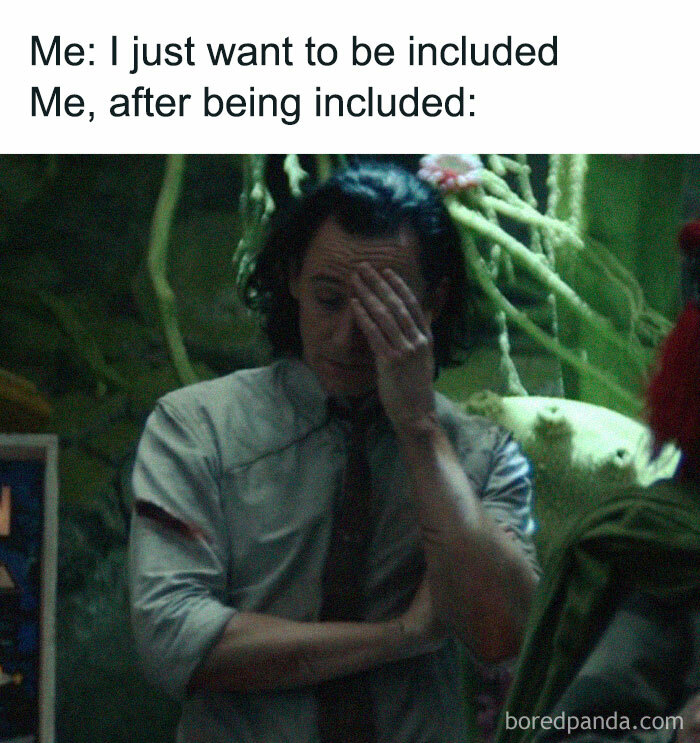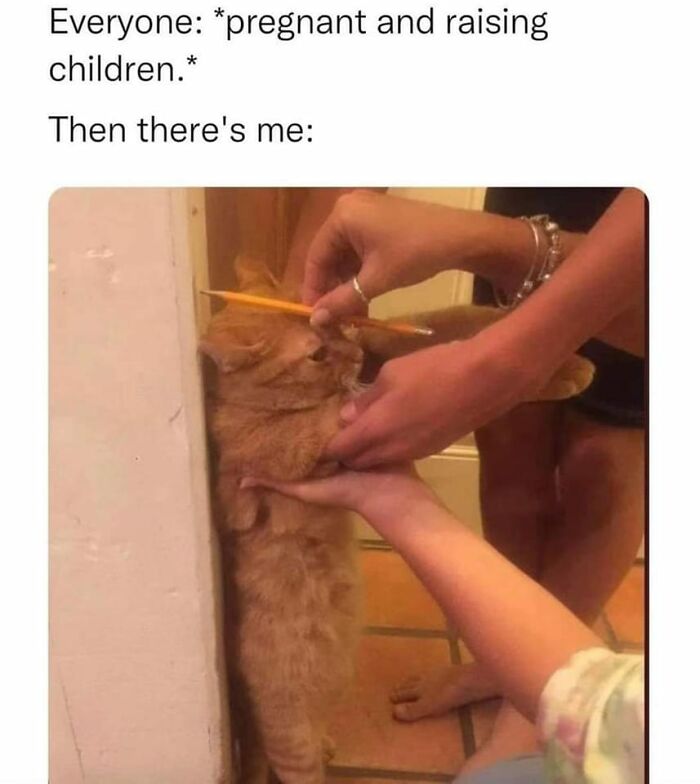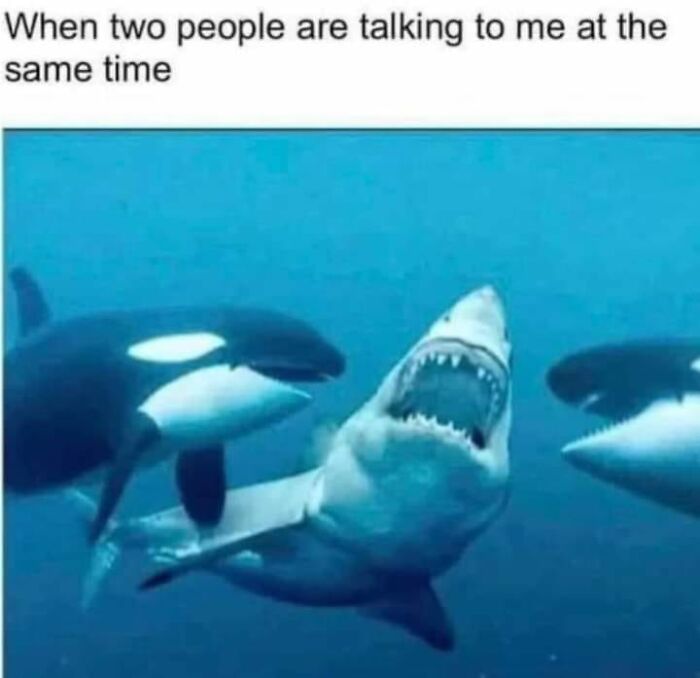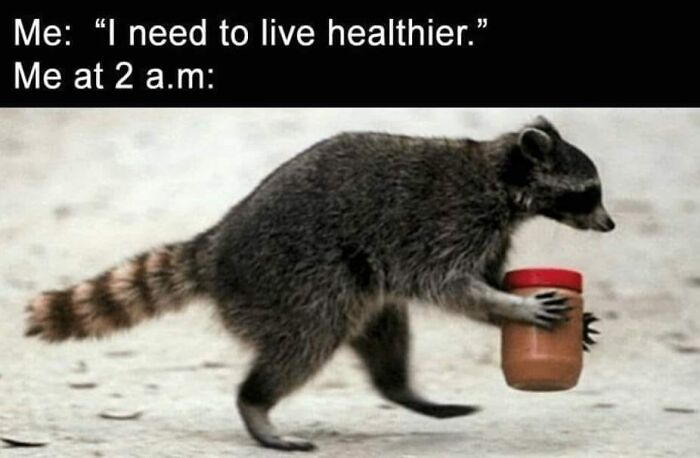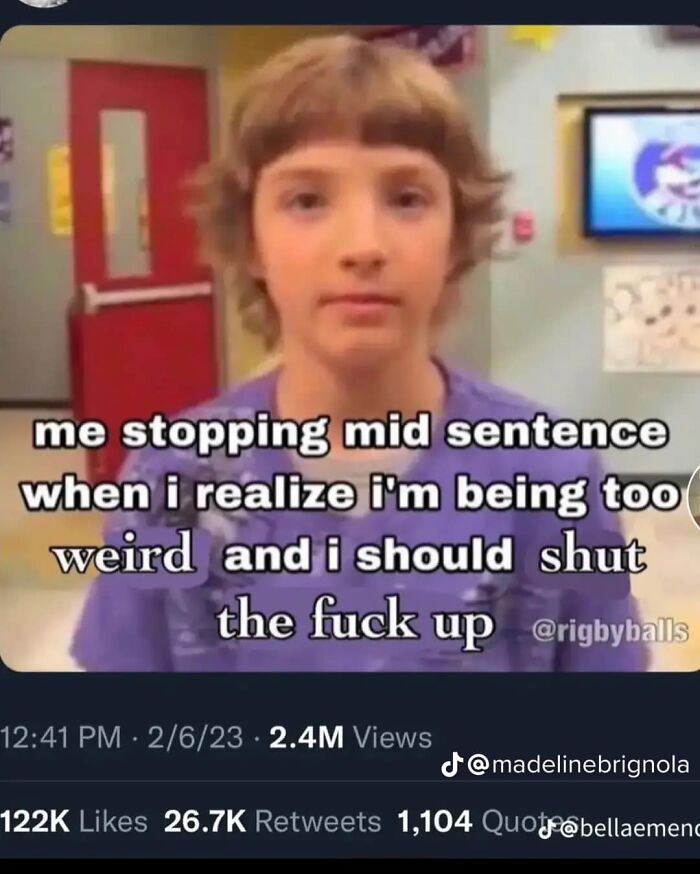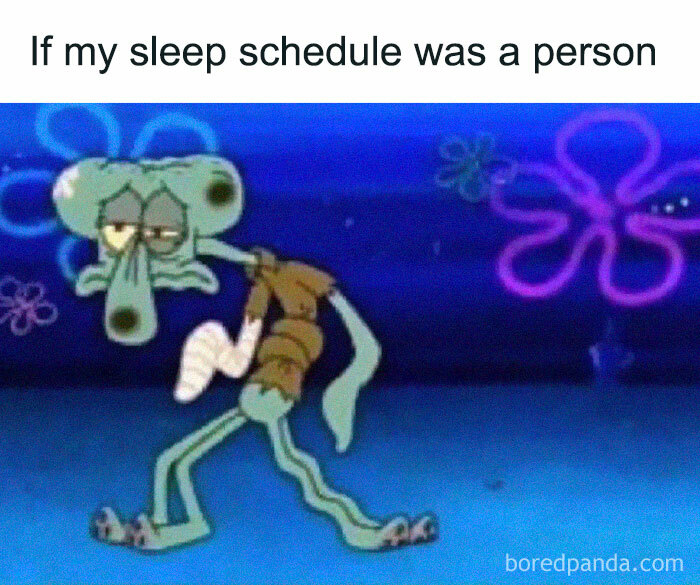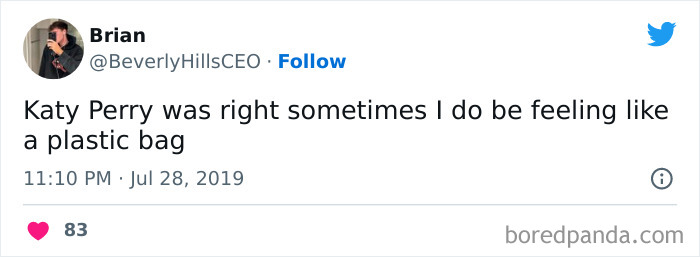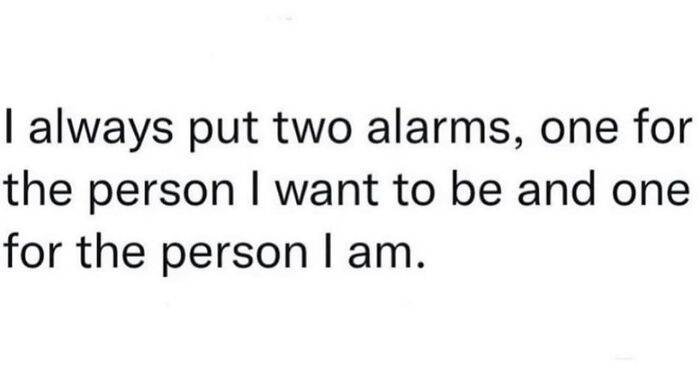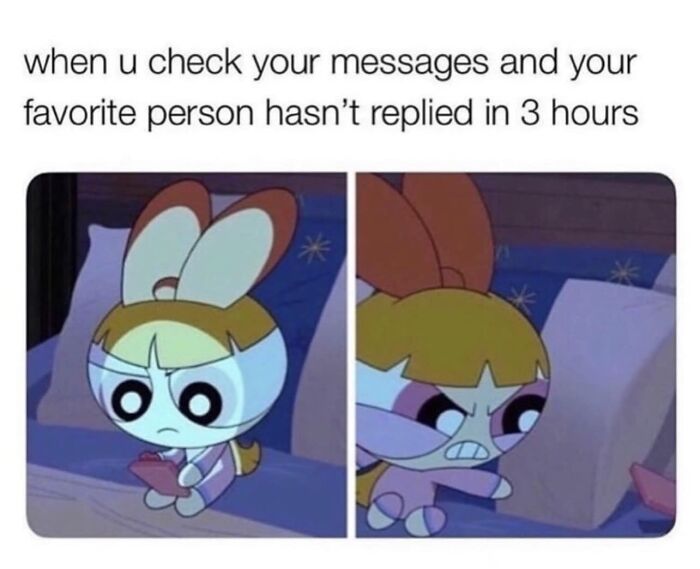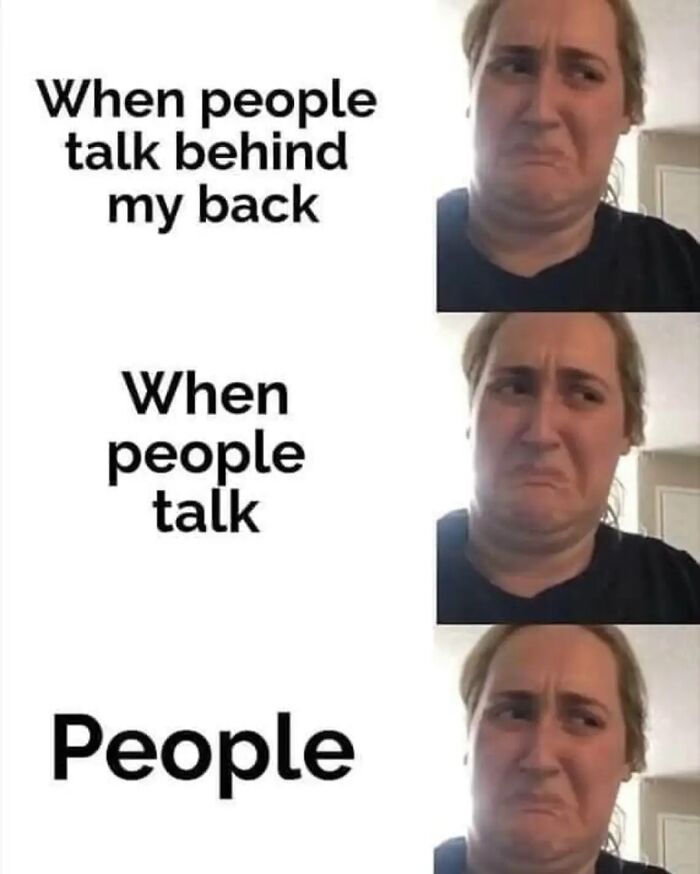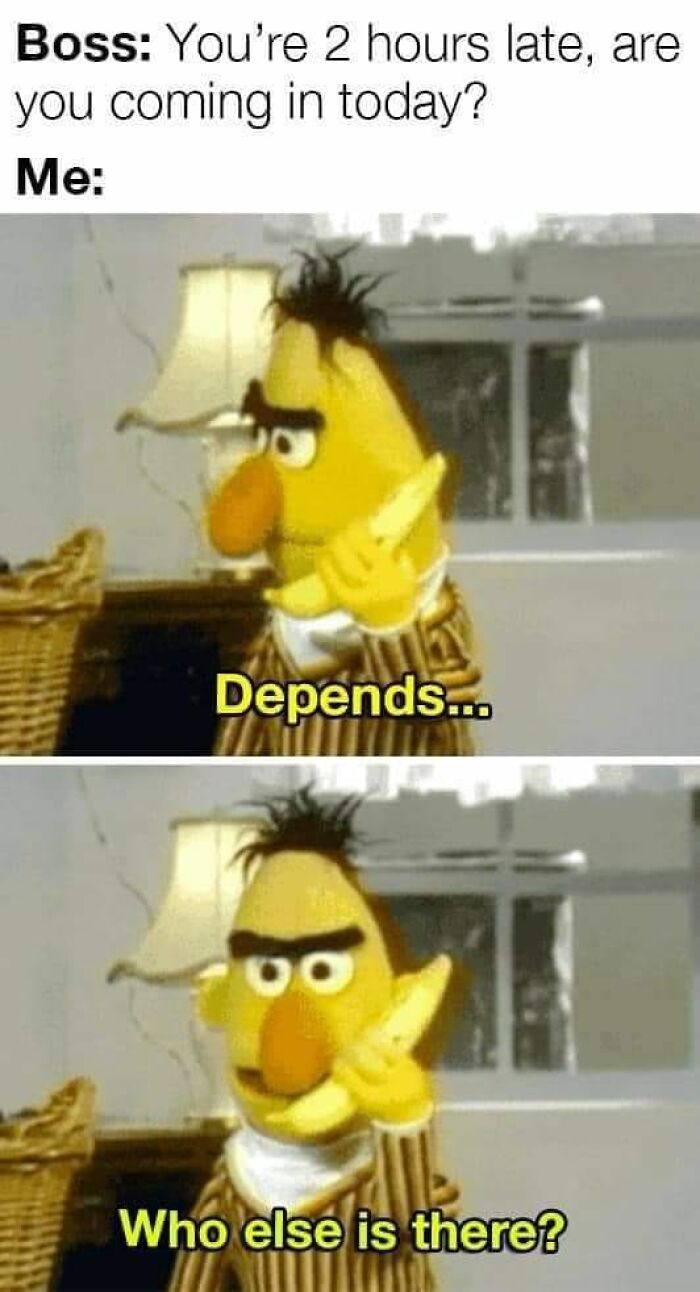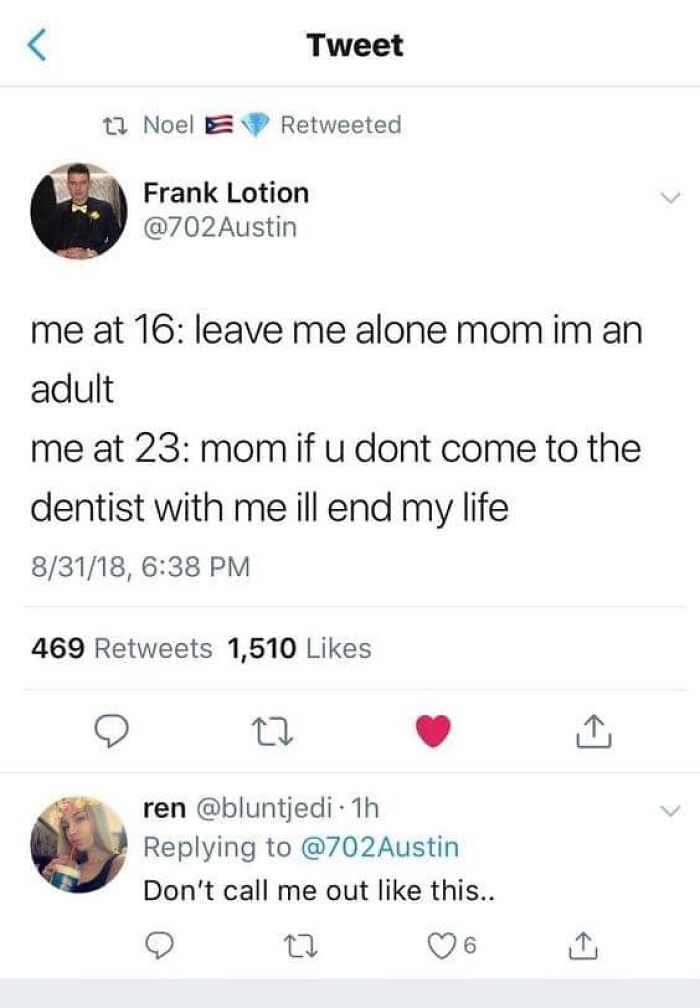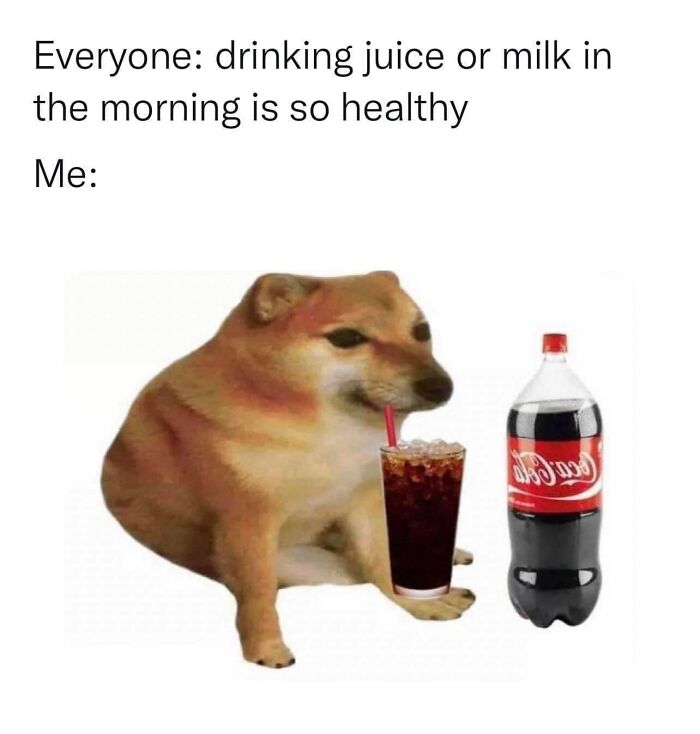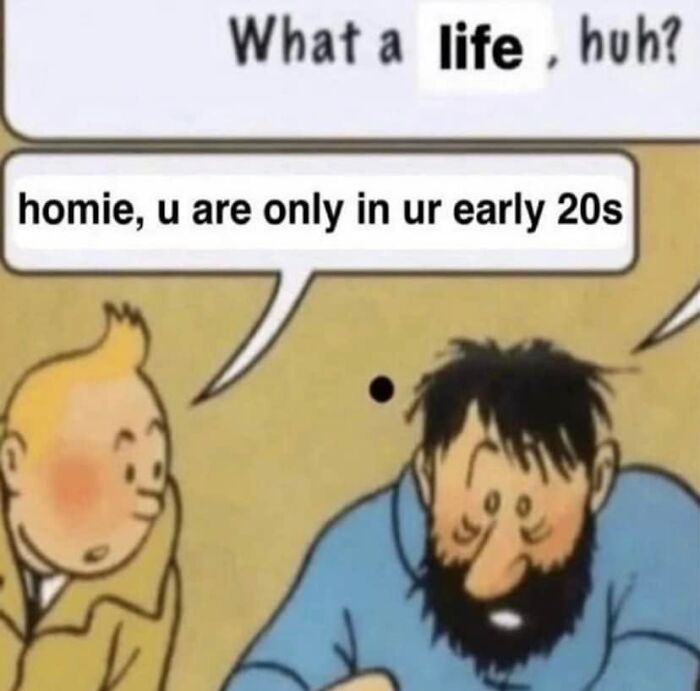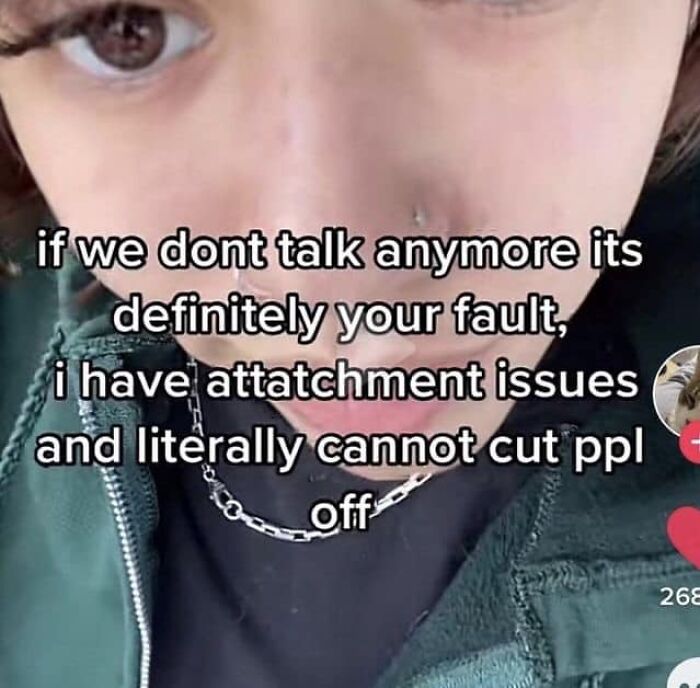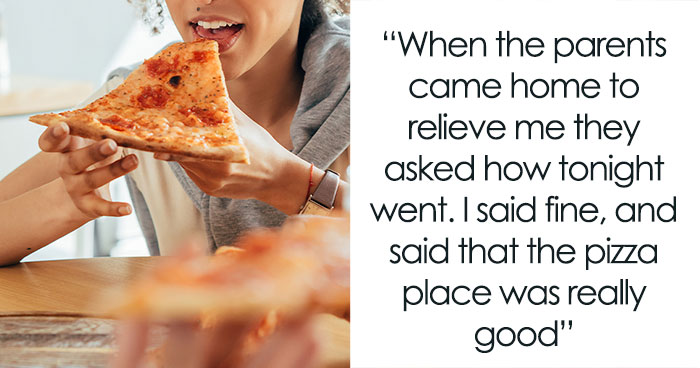Nowadays, memes have become an essential part of the internet culture. They cover nearly every possible aspect of life, as people use them to express everything from humor, to sadness, and beyond, which is what makes them so relatable; often to the point you might even feel personally attacked.
One place you’re bound to find such memes is the private Facebook group titled ‘I feel personally attacked by this relatable content, damn’. If the expressive title is not clear enough, the description emphasizes that “If you do not ‘feel personally attacked’ by the content you are about to post then it is not relatable content, damn!”, making sure that every post shared in the group will make at least some people go “been there, done that”.
Today, we have gathered some of the group’s best memes for you to browse, so wait no longer and scroll down to see if the situations depicted in them are something you can relate to.
In order to delve deeper into why we enjoy relatable content, Bored Panda got in touch with a former clinical psychologist, Leon F. Seltzer, Ph.D, who was kind enough to answer some of our questions. You will find his thoughts in the text below.
This post may include affiliate links.
Started back in 2020, the private Facebook group has already amassed over 170k members, sharing memes and other relatable content daily. Considering that roughly 62% of the global population nowadays—a number that grew from 6% in the year 2000—are internet users, there ought to be people who can imagine themselves in, or have actually been in, situations the group’s content covers.
Similarly to liking people who are similar to us, we tend to enjoy content we can relate to as well. Life consultant for personal, professional, and corporate consultations, formally retired from clinical psychology, Dr. Leon Seltzer explained why that is: “If a person can't personally relate to a subject being written or talked about—or if an activity is one they know little about and have never shown any interest in—they'll feel alienated from it. It will leave them disappointed and disengaged. On the contrary, if they relate positively to some topic, if it feels vital or exciting to them, they'll be motivated to get involved in it, to take it on.”
And either crazy run-on sentences with an insane number of commas, the kind that turns into a full paragraph, even though it is all the same thought, or a series of short declarative sentences that you send one sentence per, instead of typing out the full thought and then hitting send. That happens.
When it comes to liking similar people, professor of psychology and chair of the psychology department at Albright College, Gwendolyn Seidman, Ph.D., pointed out that it is important to distinguish actually having a lot in common (known as actual similarity) and believing to have a lot in common (perceived similarity).
In an article for Psychology Today, Dr. Seidman suggested that the less information we have about a person, the more actual similarity affects us liking them. For example, learning that a person has similar interests as you do boosts liking them as you have nothing else to base your impression on without having actually met them.
Based on previous research published in the Journal of Social and Personal Relationships, Gwendolyn Seidman, Ph.D., suggested that there are several reasons similarity increases liking. For instance, meeting people with similar views or virtues makes us more confident about those views or virtues. Moreover, having something in common with others might make us think positively about them, in a way making us feel more positive about ourselves.
As a professional overthinker this meme is so accurate. I feel personally attacked.
Liking those who are similar to us is also related to the self-expansion theory, which states that people benefit from spending time with others by gaining knowledge and experiences. “Even though a dissimilar person would be more likely to actually provide new knowledge and experiences, research has shown that people are more likely to see self-expansion opportunities when interacting with someone who is similar, rather than dissimilar, to them,” Dr. Seidman pointed out.
Dr. Leon Seltzer also emphasized to Bored Panda that people benefit from learning from those around them. “Growing one's interests and developing new skill sets is experienced by most people as rewarding. Biochemically, what's fresh and novel enables them to secrete dopamine, and that's an unconscious incentive to engage in what before was unprecedented for them.”
“To put it simply, we're made that way,” he added. “Despite our capitalistic, competitive, dog-eat-dog culture, most people would (if only secretly) prefer to cooperate rather than compete. Liking to work together and play together are in our DNA. So playing Monopoly or Uno will be more fun and self-affirming than, say, playing Solitaire.”
I saw a mosquito sitting on my arm helping itself while my hands were full, so I ate it. Got my blood back as a bonus!
In addition to gaining knowledge from people around us, we receive an abundance of information from the digital world as well. It might not always be memes, but internet content has arguably enabled us to learn and share more, according to Pew Research Center’s data.
It revealed that in 2014, the vast majority (87%) of internet users in the US agreed that it has improved their ability to learn new things. Back then it was estimated that by 2015, Americans would consume 1.7 trillion hours of traditional and digital media—a projection based on the 5% annual growth in the amount of information and media in people’s lives between the years of 2008 and 2013. “That is an average of 15.5 hours of media per person per day of 30 different kinds of media in video, print, audio, and gaming formats,” the report reads in part.
Considering how much of online content is memes, it is arguably safe to say that we might learn a thing or two from them. Not only learn, but use them to share information as well. Covering ‘The surprising power of internet memes’, BBC pointed out that they are more than puns hidden in a humorous combination of texts and visuals; they can also be tools for self-expression, connection, social influence and even political subversion.
If memes are something you enjoy, Bored Panda has an endless supply of them, covering nearly every topic imaginable. There are memes about work, animals, marriage; there are also wholesome memes, hilarious ones, even mental-health-related memes, so choose wisely and enjoy browsing the colorful world of internet content.
Bear me too "Hordor" + "anticus" makes it even better. (Like, beat me to it + 1)
Load More Replies...Never seen it before. Looks like a Reeses peanut butter cup
Life with an undeniable purpose? Yeah, I can see why this is so alien to most folks... I wouldn't trust 99.9% of the human race to protect my life.
Imagine being an introvert and being your own door. Dude, that's f*****g empowerment.
sounds like me right now... just made a second coffee to track down the first one and find out why it isn't working
In Chinese, the standard greeting is not "how are you?", but "did you eat?".
I've never known how big Burt was in real life. Now I do. Thanks again, banana.
Me at 64, mom please come to the doctor with me, I'm really frightened.
I cry then I apply eyeliner and think I don't look like I have cried so much.

 Dark Mode
Dark Mode 

 No fees, cancel anytime
No fees, cancel anytime 







